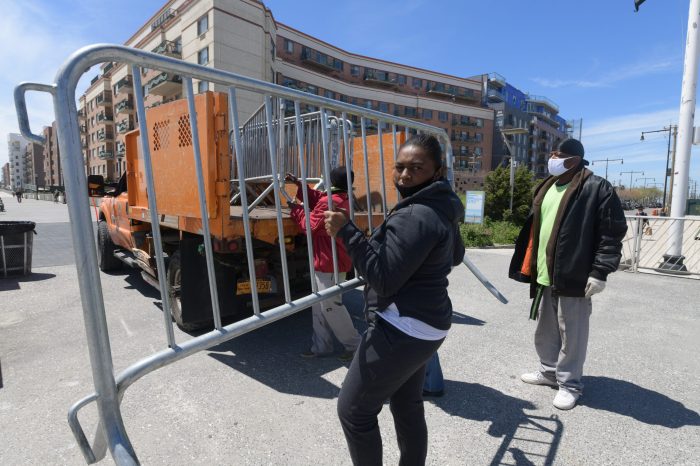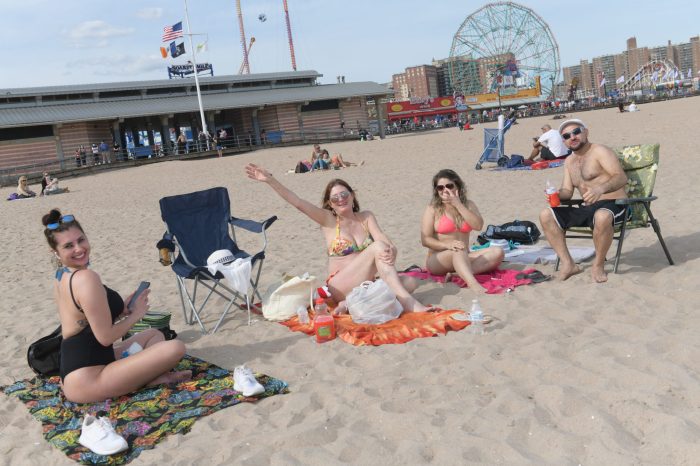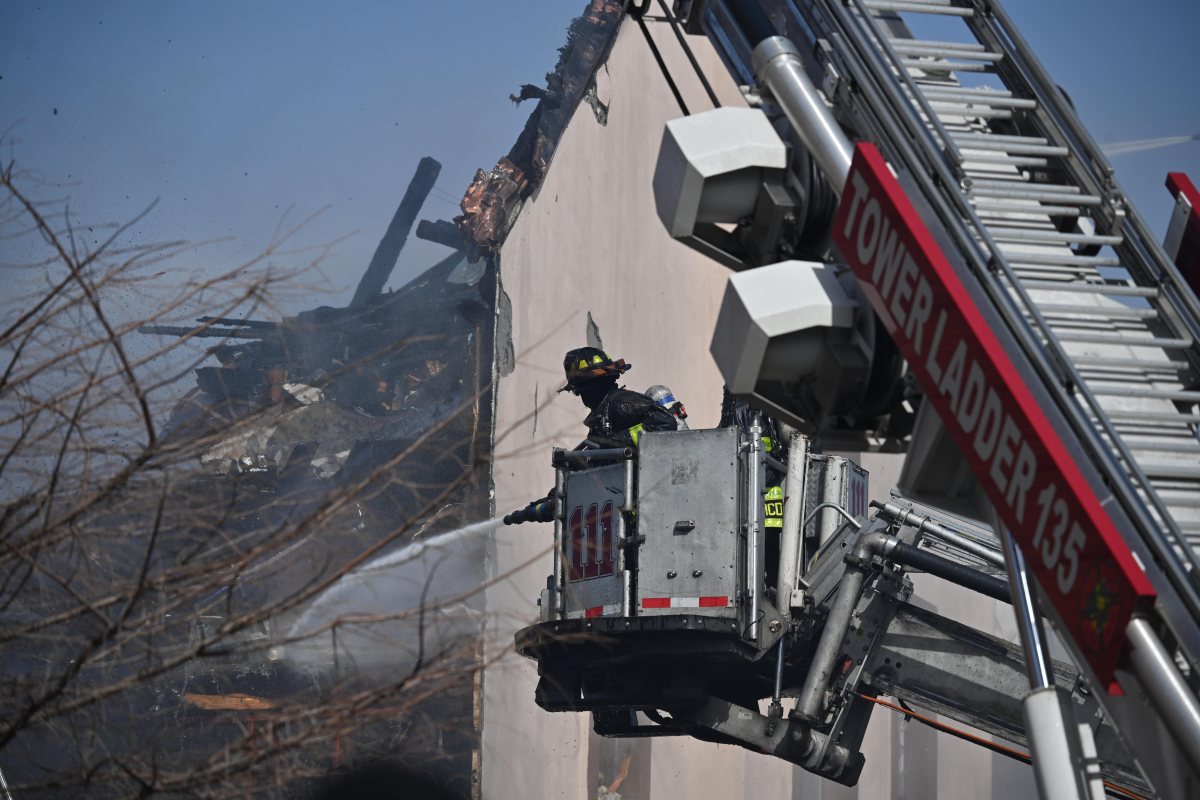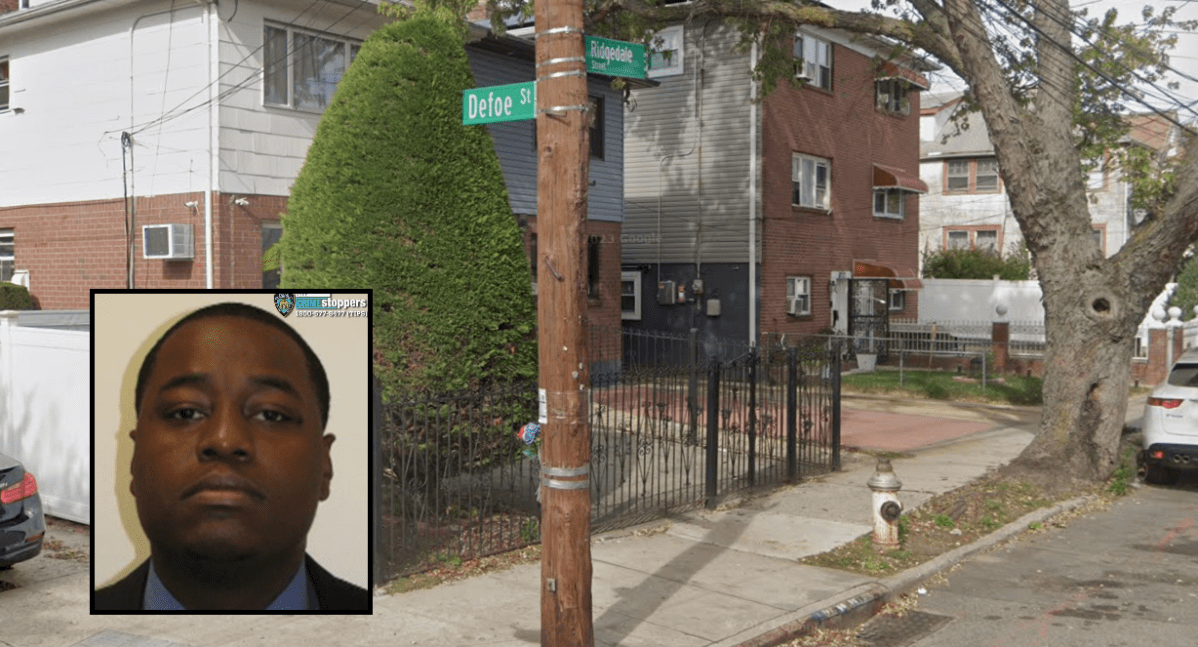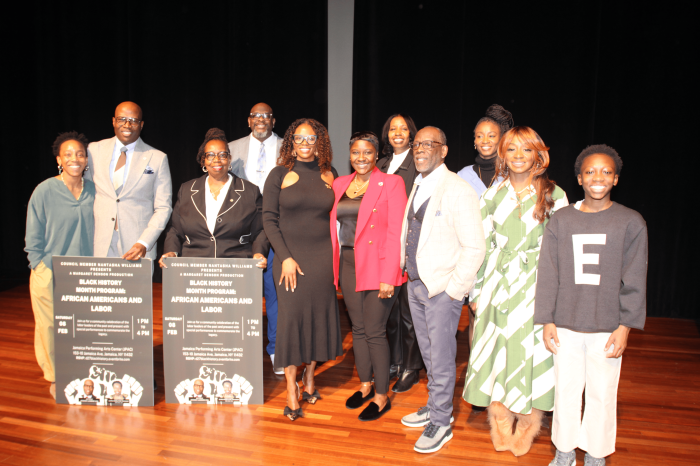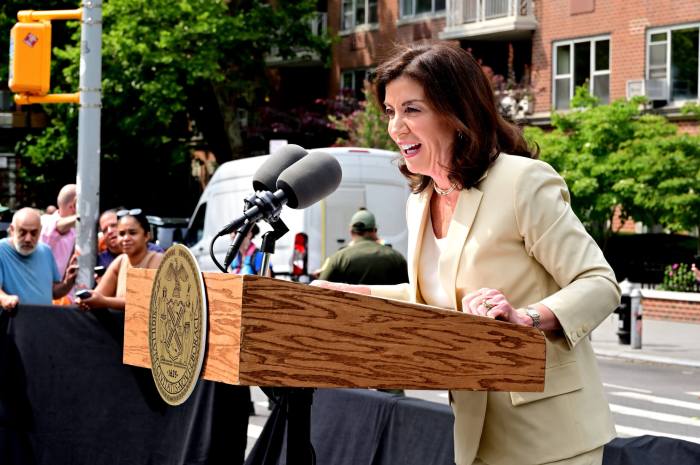While Democrat Mathylde Frontus seems poised to eke out a victory in her re-election bid for Coney Island’s Assembly seat, many locals are left wondering how the race ended up so close — with her QAnon-supporting Republican rival garnering a significant share of the vote in the heavily blue district.
Mark Szuszkievicz — a self-described financial adviser, actor, and cross-country truck driver who has voiced support for the QAnon conspiracy theory — initially led Frontus by 2,822 votes after an election night count that left out two polling sites, before a subsequent recanvassing of in-person ballots narrowed Szuszkievicz’s lead to 2,348 votes.
The city’s Board of Elections recorded 4,059 more absentee ballots from registered Democrats than from Republicans in the district that spans the coastline from Coney Island to Bay Ridge, meaning that Frontus will likely make up the deficit and be declared the winner when all votes are counted on Monday.
Still, the margin of victory will surely be less than the nearly 3,000 vote victory she secured over her Republican opponent in 2018, and the over 8,000 vote margin enjoyed by her Democratic predecessor in 2016.
Meanwhile, the comparatively unknown challenger raised only $1,420 for his campaign, compared to Frontus’ $18,600, and the fringe views posted on his social media accounts — such as an Instagram post suggesting that actor Tom Hanks is part of a global sex trafficking ring — make him an unlikely choice for the southern Brooklyn seat.
But many politicos contend that Szuszkievicz’s strong showing comes not from his campaign, but from a potent red wave that swept southern Brooklyn in the wake of Black Lives Matter protests, an increase in shootings, and the coronavirus-related lockdowns.
“Some people were upset with ‘defund the police’ and COVID, and the red zone. People were angry,” said Assemblywoman Rodneyse Bichotte, who leads the Brooklyn Democratic Party. “I think some of the electeds themselves weren’t expecting the outcome.”
The so-called southern Brooklyn “red wave” has helped buoy the campaigns of two other Republican challengers in nearby races — Nicole Malliotakis, who defeated incumbent Congressman Max Rose, along with Vito Bruno, who is locked in a nail-biting race against state Sen. Andrew Gounardes.
Others have pinned Szuszkievicz’s success on the district’s large Russian population, particularly in west Brighton Beach’s Warbasse Houses and Trump Village, which voted overwhelmingly for Szuszkievicz, according to a map of the votes. One Russian-American politician, who served as the district’s Assembly rep from 2007 to 2015, said that Russian voters lean red because of a deep-rooted fear of socialism.
“Socialism is one factor — or I should say the idea that socialism could come to the US,” Alec Brook-Krasny told Brooklyn Paper. “People who don’t know the issues will be afraid they’ll be back in the USSR.”
President Donald Trump also won over most of east Brighton’s Russian residents because they skew older and more conservative, and because many Russian Jews approve of his pro-Israel rhetoric, Brook-Krasny added.
“[Trump’s] most important achievements for the Russian Jewish community are his achievements in the Middle East,” he said.
Brook-Krasny, who’s running for City Council in Coney Island next year, said that he doubts that most Russian voters knew who Szuszkievicz was when they voted for him.
“I don’t think they would even notice his name. Many of them were just voting from the top to the bottom on the Republican line,” he said.
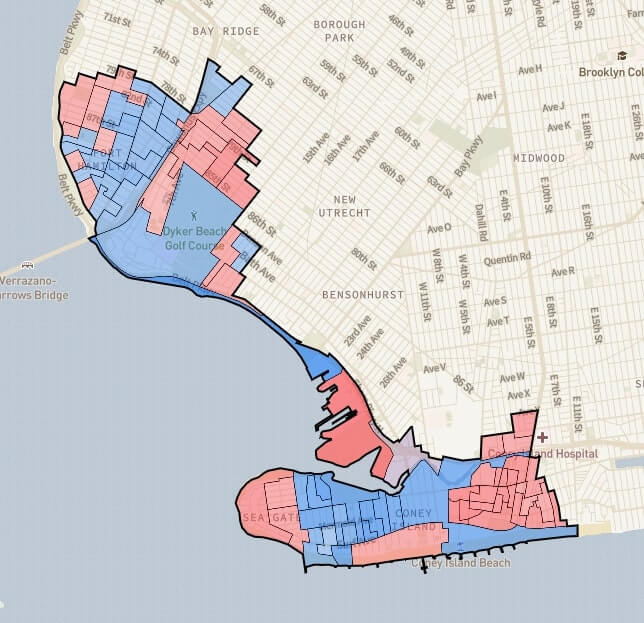
Silence from local Democrats
Others have questioned Frontus’ apparent lack of institutional support from the Democratic party apparatus, including the party’s two district leaders in the area, who are ordinarily expected to campaign for candidates down the party line.
Coney Island Councilman Mark Treyger, along with the president of Treyger’s political club, Dionne Brown-Jordan, hold the two party posts in the district. Yet, Treyger failed even to publicly endorse Frontus, despite endorsing and knocking on doors for both Max Rose and Andrew Gounardes in their re-election bids.
For his part, Treyger — who has had a longstanding conflict with Frontus that began after she defeated his former staffer in the 2018 assembly primary — said he did support Frontus in her re-election bid by helping her get enough signatures to appear on the ballot for the June primary.
“We filed over 900 signatures in the middle of a pandemic in order to get the Assembly member on the ballot,” he said.
But the councilman, a Russian speaker popular in the local Russian community, explained he did not endorse Frontus or campaign for her because neither she nor the Democratic party asked him to.
“Congressman Rose called me and asked for assistance at least for me personally. I did not receive any phone calls from the Brooklyn Democratic Party with regards to the Assembly race,” Treyger said. “To my knowledge, there were no emails, no phone calls, nothing sent out from the Brooklyn Democratic Party.”
Treyger added that he found the implication that he would inadvertently help the election of a QAnon supporter “insulting.”
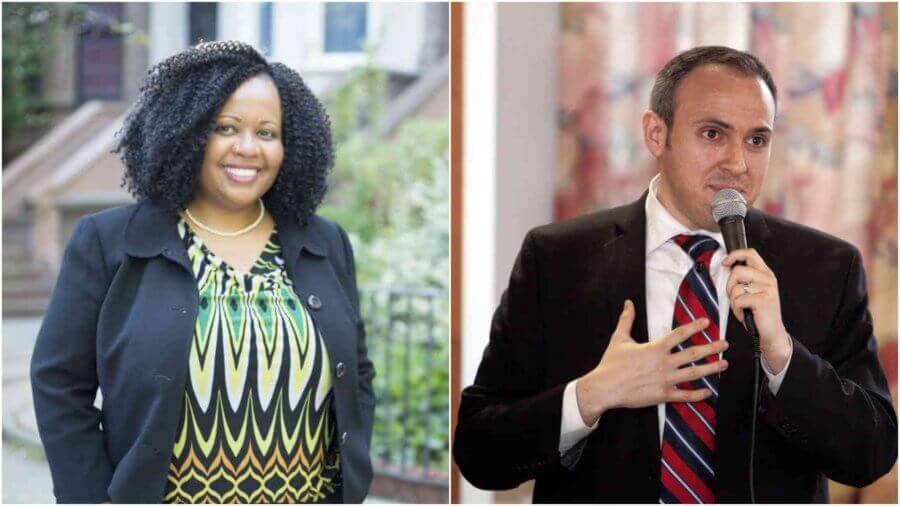
“I have to say that as a Jew and as the grandson of Holocaust survivors, I find it deeply offensive and insulting that anyone would make the implication that somehow Democrats would help a QAnon supporter,” he said.
The party boss, Rodneyse Bichotte, told Brooklyn Paper that the party doesn’t usually instruct district leaders to endorse or campaign for local candidates.
“The Democratic party assumes that everyone’s working together,” she said. “Everybody knows their responsibility. Everybody does what they need to do in their own district to support their own party.”
Dionne Brown-Jordan — who works at Warbasse Houses and serves as the president of Treyger’s political club, the Southern Brooklyn Democrats — did not respond to multiple requests for comment.
Bichotte brushed off the implication that the party failed to provide enough support, saying they’d sent out press releases, volunteers, and newsletters to support the incumbent.
One reform-minded politico, however, said they could have done more to back Frontus against her conspiracy-laden challenger.
“When they want to support someone, they will pull out all the stops,” said Jessica Thurston of the New Kings Democrats, a progressive political organization. “I can’t imagine [that] the party coming in and supporting her wouldn’t have helped.”
Still, Frontus says she feels confident that she will win.
“I feel really good,” she said. “It doesn’t mean that I’m a shoe-in, because I believe in being cautious…We frankly won’t know with certainty until they’re opened and processed.”
The Board of Elections will begin processing ballots from the 46th Assembly district on Monday.
This story first appeared on our sister publication brooklynpaper.com.




